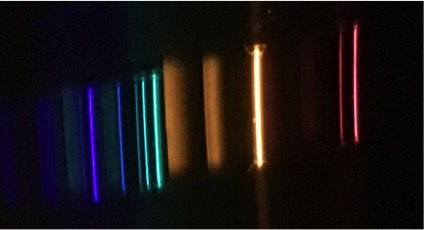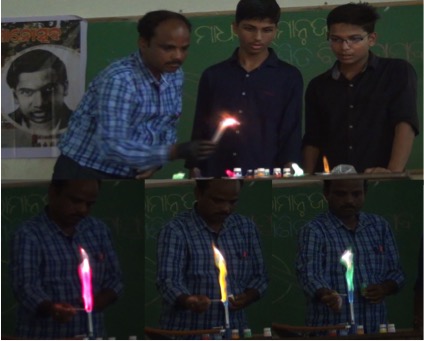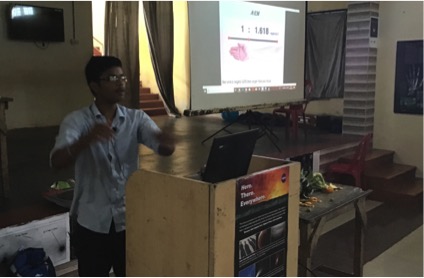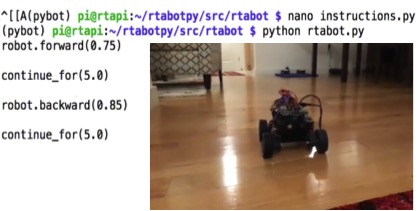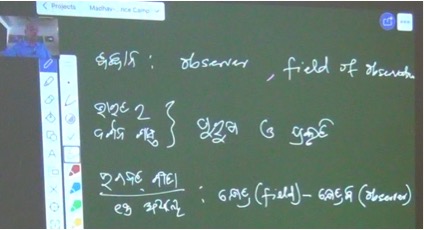|
|
|
| Home |
Download Admit Card for Rtapalli Entrance Test

|
| About |
| Previous Tests |
| Academics |
| Rtotsava |
| Shraddha Foundation |
| Toshali Vidyapitha |
| Rtashrees |
| Odia Poetry |
| Important Links |
| Contact |
 Shraddha Foundation Scholarship - 2026
Shraddha Foundation Scholarship - 2026(Rtapalli Admission Test) Notice: The last date and time for submission of application: 5th February, 2026 (Thursday), 05:00PM. |
Rtapalli Vidyapitha, a free residential high school surrounded by mango trees and vegetable gardens, welcomes you to explore our highly exciting and challenging mathematics and science program for high school students. We admit students in Class VI (6th Grade) from mostly Odia-medium elementary schools, and help them learn how to learn on their own. In order to whet the curiosity in young minds by exposing them to the wonders of nature, Rtapalli along with its daughter organization, Rtasrota, conducted a mathematics and science camp for forty five Class V students from all over Odisha in August, 2019. Madhava-Ramanujan Ganita-Vijnanotsava, named in honour of two of the greatest mathematicians of India, was a three-day celebration at Rtapalli. Students were introduced to a variety of exciting ideas like Hemachandra numbers (Fibonacci numbers), circuits with potatoes, eddy current, colours and atomic spectra, DNA and RNA, galaxies, neutron stars and blackholes. The students greatly enjoyed controlling over the Internet the movement of a robot stationed in Boston, USA. For more details visit the camp page. Academics: Rtapalli strives to build a Center of Excellence in mathematics, science and Sanskrit. In addition to mathematics, physics, chemistry and biology, strong emphasis is given to Sanskrit, Odia and English literature. Our students are introduced to the teachings of Bhagavad Gita and the Upanishads in order to prepare them for life ahead. In order to ensure a wholesome growth of our children Rtapalli provides opportunities to learn classical Odissi dance and Indian classical music (Vocal , Tabla and Flute) . Rtapalli aims to create a nucleus of students brought up with academic excellence and strong social commitment. In the ambiance of a Gurukula with modern technology, Rtapalli intends to shape the builders who will shape our nation and the world beyond. Here you can have a glimpse into the Mission and Vision of Rtasrota - the institution being built by our Rtashrees. Social Commitment and Academic Enrichment : As a part of our goal towards institution building our alumni bring in their teaching and research experience to enrich the academics at Rtapalli. Some of them contribute directly through regular online teaching from various parts of the world. The voluntary teaching staff includes our Rtapalli parivara members studying/doing research at (or graduated from) Stanford University, Harvard-Smithsonian Center for Astrophysics, Los Alamos National Laboratory, Brookhaven National Laboratory, MIT, Cornell University, University of California, Berkeley, City University of New York, University of Nebraska, Lincoln, University of Minnesota, Minneapolis, BPUT, Utkal University, Chennai Mathematical Institute, Indian Institutes of Science Education and Research, IIT and IISc. Admission Policy : About 15 students are admitted to Class VI each year from all over Odisha through a two-phase entrance test. Students from low-income families and rural areas are given preference for half of the seats. Keeping in focus the philosophy of Shraddha, and Rtapalli Founders that all children are equal, the other half of seats are need-blind and filled without any discrimination. |
Introductory video about Rtapalli Vidyapitha inviting students for Shraddha
Scholarship Examination.
Satya Number Theory Lecture-1
|
